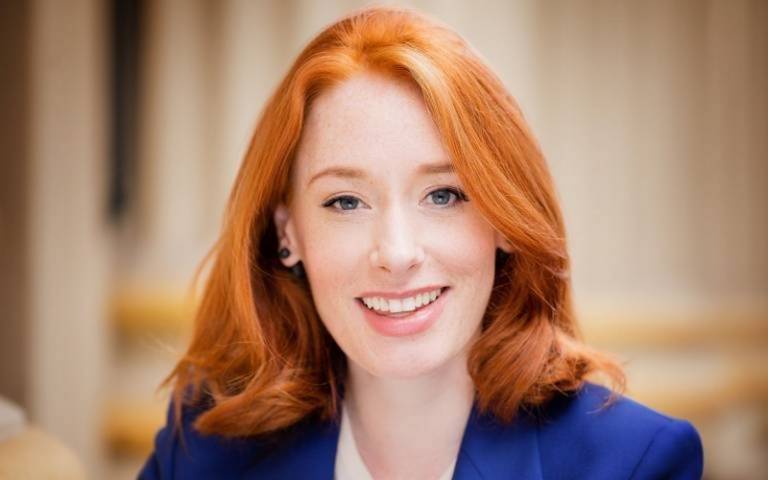Public and media impact arising from mathematical research at UCL
UCL researchers have inspired millions of people with maths and how it can be applied in real world scenarios.

12 April 2022
Professor Hannah Fry in UCL’s Centre for Advanced Spatial Analysis uses mathematics to address social questions, from human relationships with algorithms, through to crime, and outbreaks of infectious disease. Professor Helen Wilson develops mathematical models of complex fluids, with wide-ranging industrial applications.
Through research, its application and public engagement, the UCL team has helped raise awareness of how maths is used in real-world scenarios. Professor Fry’s 2018 book, Hello World has been read by over 140,000 people, helping people on a variety of career paths, to better understand the uses, and misuses of mathematical algorithms.
Contagion!
In 2018, before the coronavirus pandemic, the BBC commissioned a project – Contagion! The BBC Four Pandemic – to help the public develop a better understanding of how an infectious disease like flu can spread, by collecting and interpreting data on how people travel and interact.
In collaboration with researchers from the University of Cambridge and the London School of Hygiene and Tropical Medicine, Professor Fry led the documentary’s development and a nationwide recruitment campaign, encouraging members of the public to participate, sharing their age, location and movements.
More than 30,000 people participated and over 10,000 downloaded the Contagion App. The data were used to develop a mathematical model of disease spread, how a potential pandemic might unfold, and the effect of control measures such as handwashing. The Contagion! documentary was aired in March 2018 with over half a million viewers.
Covid-19 pandemic
As the Covid-19 pandemic took hold, the UCL team published their population contact matrices, giving age-specific patterns of movement and social mixing, classified by key characteristics such as the type of contact and location. The mathematical models they built demonstrated that the most effective strategy against Covid-19 is a combination of isolation and full contact tracing.
In 2020, the Contagion! documentary continued to encourage discussion on how lockdown could help reduce the reproduction number (R) of the epidemic and as an exemplar of contact tracing. The mathematical models developed for the Contagion! project were widely used by media outlets to communicate the importance of hand washing. The documentary has also been broadcast in six other countries to help quell misinformation circulating about the spread of Covid-19.
Professors Fry and Wilson have engaged with tens of thousands of school children across the UK, inspiring many more girls to continue studying maths. Since their public engagement with maths programme began, applications to UCL Mathematics have increased by 46%.
Research synopsis
Public and media impact arising from mathematical research at UCL
UCL researchers have inspired millions of people with maths and how it can be applied in real world scenarios. By engaging audiences via public talks, books, documentaries and social media, the team has helped dispel misinformation about the coronavirus pandemic and inspired a generation of girls to continue to study maths.
Project team: Professor Hannah Fry, Professor Helen Wilson, Dr Adam Townsend
Links
- Professor Hannah Fry's academic profile
- Professor Helen Wilson's academic profile
- UCL Department of Mathematics
- Bartlett Centre for Advanced Spatial Analysis
- The Bartlett Faculty of the Built Environment
- The Bartlett Faculty of the Built Environment REF 21
- UCL Faculty of Maths & Physical Sciences
- UCL Faculty of Maths & Physical Sciences REF 21
Image
- Image credit: Paul Wilkinson Photography
 Close
Close

